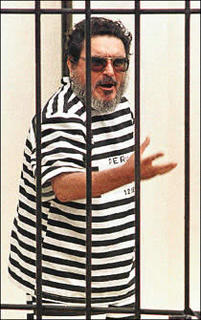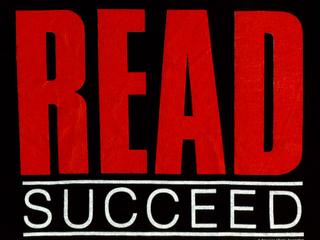
There are "realists" who claim Nepali Maoists have to be seen for who they are, and one has to simply look at their Cambodian and Peruvian counterparts to understand where they are coming from and where they are headed. After the Maoists take over, they will be even more immune to international pressure than the Monarchists have been. The only option will be foreign military intervention. The Maoists will butcher 5 million Nepalis - "class enemies" - or more. Compare 12,ooo lives to 5,000,000 lives. Does not even compare.
I call this the cliff theory. As in, you have to stay away from the cliff, because, once you fall, you can not pull back half way down. The Maoists taking over is the country falling over a cliff.
The Americans lead this "realism" camp. And I am glad for it. The Americans will do anything, even resume arms supplies regardless of the king's autocratic moves, to make sure the Maoists do not take over. So the realists are like an umbrealla, a safety valve. And thank you. But because that umbrella does exist, that gives the rest of us more room to seek political solutions to the civil war. We can be confident the Maoists are not in any position to "use" the democrats to further their nefarious ends.
I am against a military takeover of the country by any group, Maoist or Monarchist.
But the question I ask is why did the political parties and the king not go for the UN-mediation, Constituent Assembly option a few years back? That is the question the Monarchists and the democrats have been evading. Even now the democrats are not speaking with one voice on the Constituent Assembly question.
True, the Maoists have to be seen for who they are. Since 2/1, the hardliners seem to have gained the upper hand. When you humiliate the moderates during the "peace process," you end up dealing with the hardliners.
But then also the Monarchists have to be seen for who they are. Does this king want peace? Will he face the reality that there really is no military solution? Prachanda might get captured, and the insurgency will still go on. A few Maoist strongholds might get dismantled, and the insurgency will still go on. The king gives no evidence he is trying to cure the insurgency. Ever since he ascended the throne, he has exhibited a singular determination to expand his personal power base.
But I have seriously revised my thoughts on the king after he lifted the emergency. At least he is not trying to reenact the Panchayat. He is stretching the 1990 constitution but he is at least pretending to stay within it.
It is in the nature of the leaders of dictatorial outfits like that of the Maoists and the Monarchists that their leaders exhibit little flexibility. Saddam never changed his mind. He could have compromised and saved his regime. But he never changed his mind. He went down rather.
Peruvian Maoists have talked of those among them who went for the Constituent Assembly option as traitors. But the Nepali Maoists have consistently sought the Constituent Assembly option. That is an important distinction. And it has to be noted. And both Prachanda and Baburam have been for it.
If we are to fear a Maoist dictatorship, we already have a Monarchist dictatorship. If we are to fear a Maoist military takeover, we already have a Monarchist military takeover.
I looked around for information on Gonzalo of Peru. I have been particularly interested in the circumstances of his capture.
Chances are Prachanda is hiding in a forest somewhere, but more likely he is in a comfortable setting in India. But he maintains communication. So he must have access to facilities. But I don't get the impression the Monarchists are even trying to capture the Maoist leaders. I guess they do not want to get targeted themselves.
Some of the things I learned from the Gonzalo experience from my online research:
- You are not fighting a traditional war with the Maoists. I have seen pictures of RNA folks combing through Rolpa and Rukum, rank and file, marching. That strategy might not be the best one.
- For a dictatorial outfit like the Maoists are, Prachanda is everything. Prachanda's capture could be the only way to cause a serious setback to them.
- This is an intelligence war. Can you find out where he is? It can be found out. But the thing is no major attempts have been made.
- Chairman Gonzalo on Trial in Peru —RW/OR ONLINE
- RW ONLINE: The 10th Anniversary of Chairman Gonzalo's "Speech from ...
- Fascists captured Comrade Gonzalo, but Marxism-Leninism-Maoism ...
- MIM Notes 42
- Statement on the Capture of Comrade Feliciano
- Sendero Luminoso and the Trauma of Peru / gci 275
- eyeNET on Peru: 04-25-96
- NEWS & VIEWS
- THE NEW YORK TIMES (NYT) ON PERU
- About President Gonzalo
- Abimael Guzmán: Information From Answers.com
- Ecuador Discovery and Conquest
- On the Current Situation and the Defense of the Life of Chairman ...
- International Conference in Wuppertal
- The Founder of the Communist Party of Turkey/ Marxist-Leninist ...
- index_part02_book02
- eyeNET on Peru: April 18 1996
- Defend the life of Chairman Gonzalo in his condition as great ...
- Peru Fears Reemergence of Violent Rebels
- Ecuador - DISCOVERY AND CONQUEST
- Peru's Fujimori:
- Sendero File - Capture of Abimael Guzman - October 1992 / gci 275
- APPENDICES
- Sendero Luminoso (SL) Shining Path - Peru
- MBEAW: Peru: Sendero Luminoso
- URGENT
- Conquest of Peru,
- Peru Guerrillas Insurgency, 1980-92 - Flags, Maps, Economy ...
- Latin American and Caribbean Information Center
- Mario's Cyberspace Station - PERU
- The State of Contemporary Maoism
- AlterNet: Shining Path Reemerges in Peru
- The armed Antifascist struggle in Peru and Turkey
- 'Superman' Meets Shining Path: Story of a CIA Success
- Spanish conquest of Peru: Information From Answers.com
- Francisco Pizarro
- Peru: Vietnam Revisited for the Empire?
- Spanish conquest of Peru - Learn all about Spanish conquest of Peru
- cpn_snc_document2
- The Great Leap Forward: An Inevitable Need of History
- Peru history: the 1970 and 1980
- History of the Conquest of Peru - Chapter 4
- Peru’s autocracy in turmoil
- [PDF] LEADERSHIP AND POLITICAL PROCESSES IN PERU
- Sendero File / October 1992
- Interview with a member of the editorial board of the Red Sun
- Proletarians of all countries, unite! An Urgent Appeal to the ...
- CNN - Peruvian army captures Shining Path leader - July 14, 1999
- Peru's Shining Path rebel leader unrepentant at his trial
- Peru retries notorious rebel leader after life sentence ruled ...
- Peru: In Depth : Modern Peru : Terrorism In Peru | Frommers.com
- Economics
- AYACUCHO: Life after death in the Andes - NI 321 - Shining ...
- Peru
- Shining Path
- Abimael Guzmán biography .ms
- Communist Party of Peru - Factbites
- SENDERO LUMINOSO: PERU'S SHINING PATH.
- Peru's Tarnished Path
- BBC NEWS | Americas | The day the Maoists went to court
- [PDF] Social Exclusion in Peru: An Invisible Wall
- [Noticias] Shining Path leader's life sentence to be overturned by ...
- The Daring of Revolution, The Shoots of the Future by Li Onesto Revolution #1, May 1, 2005 ..... For the first time women had the right to own land and get a divorce, land was being redistributed, and peasants mercilessly cheated by usurers had torn up debt papers.... April 2005. A friend sends me a video, not yet available in the U.S., “Eight Glorious Years of People’s War”—hours of amazing footage from the liberated base areas, shot and edited by the Central Cultural De- partment of the CPN (Maoist)...... a massive rally where the Magar people, an oppressed nationality, are celebrating the declaration of the new Magrat Autonomous Government..... a binocular-like survey of a human procession that snakes across the steep mountainside for miles..... Nepotism and injustice are eliminated in villages ..... Caste and untouchability are eradicated ..... how women in Nepal are suffocated by feudal tradition. Not allowed to go to school, subjected to arranged marriages and polygamy, lives crushed by the thriving sex traffic..... This old state is tiring..... Let’s seize the central power.....
- 100 Days of Fascism in Nepal D. Michael Van De Veer — Pokhara, Nepal www.scoop.co.nz, May 11, 2005 .....
- Nepal: One Hundred Days After Royal Takeover and Human Rights Crisis Deepens, February 1 - May 11, 200
- To Aid A Rogue Regime Manjushree Thapa, published in Asian Age, May 9, 2005 ....the king had deployed half the Royal Nepal Army to arrest, detain and intimidate left/liberal political activists, journalists, and human rights workers ..... even as the state of emergency was lifted, the Kathmandu District Administration Office outlawed most civil liberties..... the monarchy, a medieval and usurious institution...... He is not, after all, constitutionally legitimate-despite all the articles and clauses that he is fond of quoting, the constitution does not anywhere allow him to do what he has done. He is, additionally, roundly unpopular: long before they (baselessly) maligned him for fratricide, the Nepali people (baselessly) maligned him for drug and idol smuggling. Were it not for the army-or a royalist clique in the army-this king would enjoy no prestige at all....... were it not for this king, the army’s royalist clique would itself enjoy little prestige....... by some accounts, the monarchy is merely a puppet manipulated by a few hawkish generals whose ultimate goal is to establish military rule, Pakistan-style ..... to avoid military rule, one must contain the monarchy...... Forging a three-way settlement now is almost the only option before Nepal-if we are not to keep hemorrhaging pointlessly...... Since February 2005, the Maoists have shown some willingness to negotiate down to a democratic platform, and the centrist political parties have come around to the Maoists’ basic demands. Only the king and his royalist generals remain inflexible.......
- Slogans for the Pro-Democracy Rally, Washington D.C., 15 May INSN
- Weed Out The Corrupt Before Launching The Andolan United We Blog “Monarchs relinquish power only under popular pressure”.
- Jan Andolan From May 26 United We Blog ...... All Party Jana Andolan Central Coordination Committee .... From June 15 (Asar 1), all professional organizations, youths and students wings of all parties will come up with combined programs.
- Attending A Semi-Underground Press Meet In Nepal United We Blog When Jeetendra, sporting a short hair and clean shaved face .....
- Madam Rocca Is Bit Happy, Bit So-So United We Blog We continue to urge the government of Nepal to release all political detainees, restore civil liberties, and reach out in a pro-active manner to the political parties...... Their recent announcement of a untied front is an encouraging first step in this process ..... Our total development assistance over the years amounts to 400 million dollars. Our security assistance over the past four years, including a one-time appropriation of 12 million dollars in 2002, amounts to 22 million dollars overall..... The Maoists have made clear their intention to impose a one-party “people’s republic,” collectivize agriculture, “reeducate” so-called class enemies, and export their revolution to neighboring states....... the longstanding political impasse ..... While we welcome the steps taken by His Majesty’s Government to lift the Sate of Emergency and release political leaders, we remain concerned about the reports of continuing repression of civil liberties and additional arrests. We continue to urge the government of Nepal to release all political detainees, restore civil liberties, and reach out in a pro-active manner to the political parties...... We have made it clear to the Government that we expect to see appropriate, timely and transparent investigations of any credible allegations of abuse...... elections at the earliest possible time.

